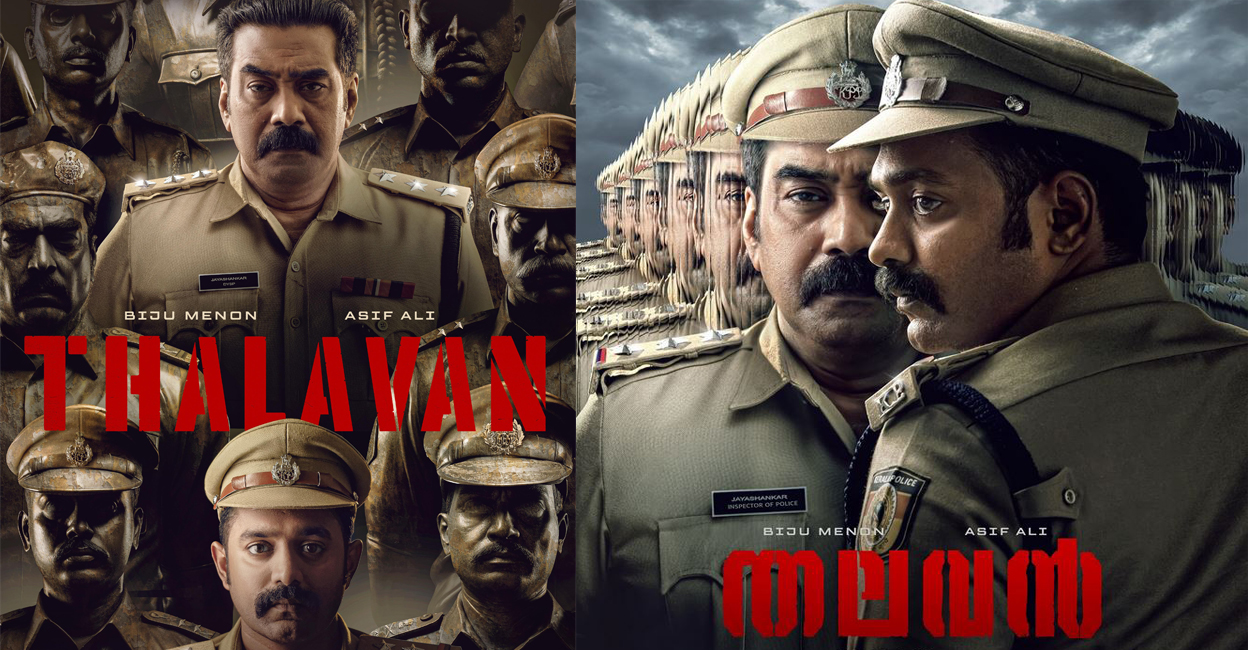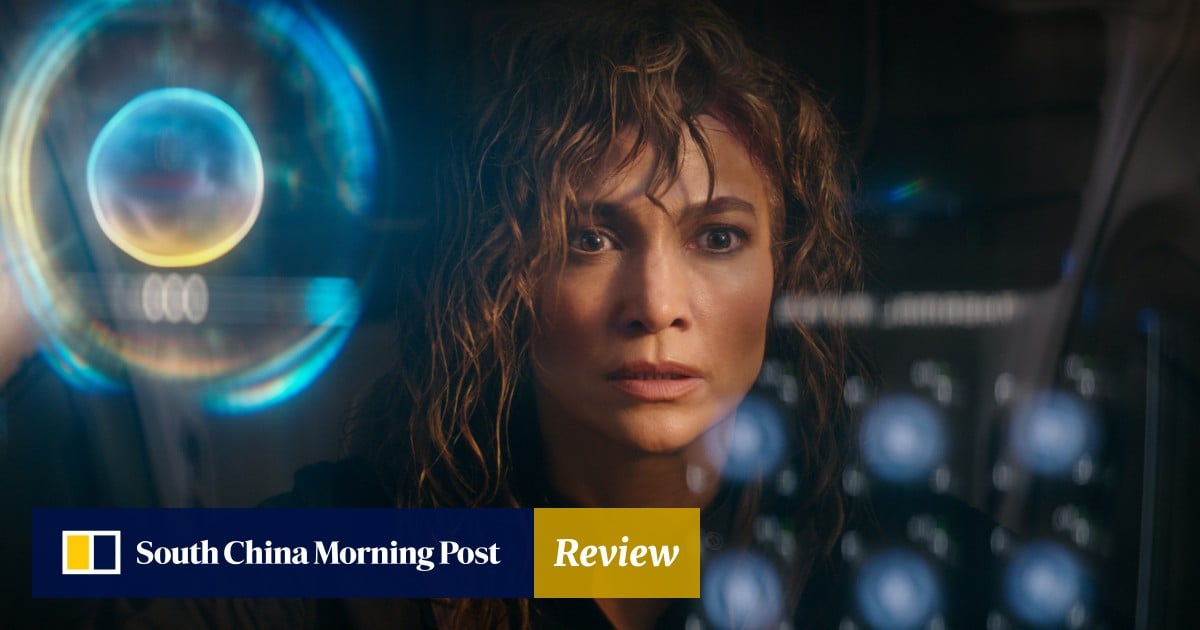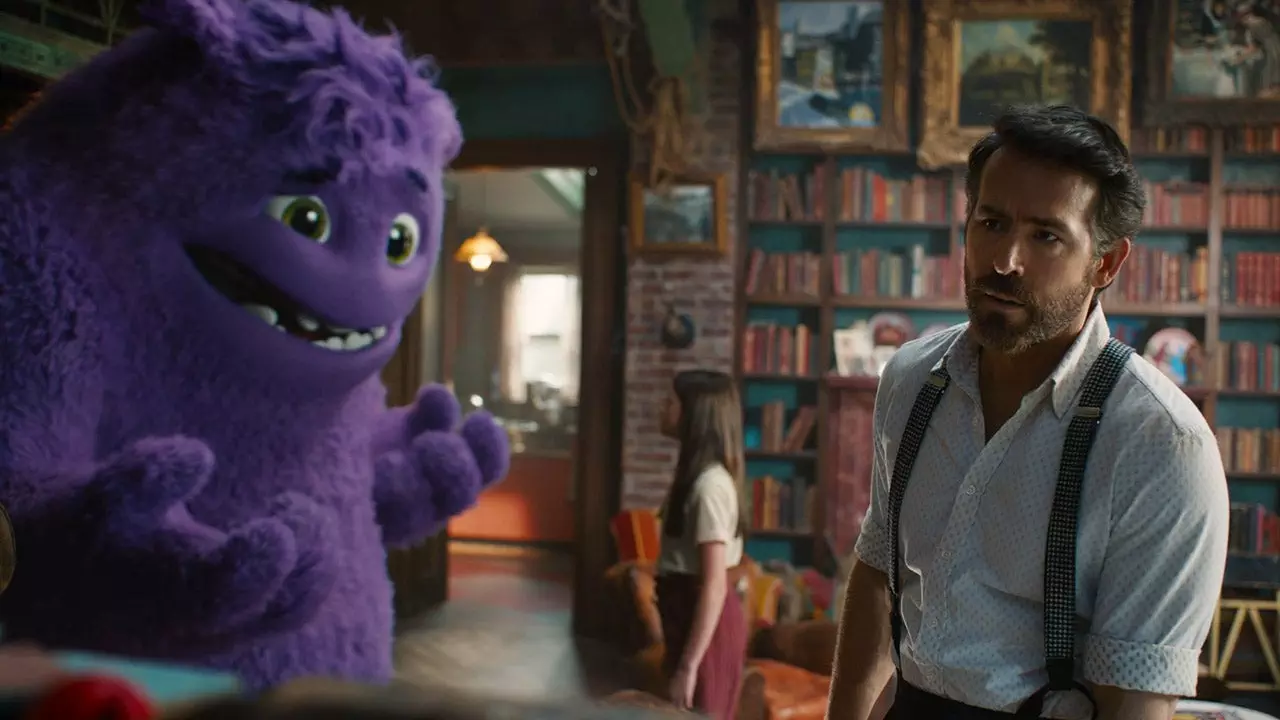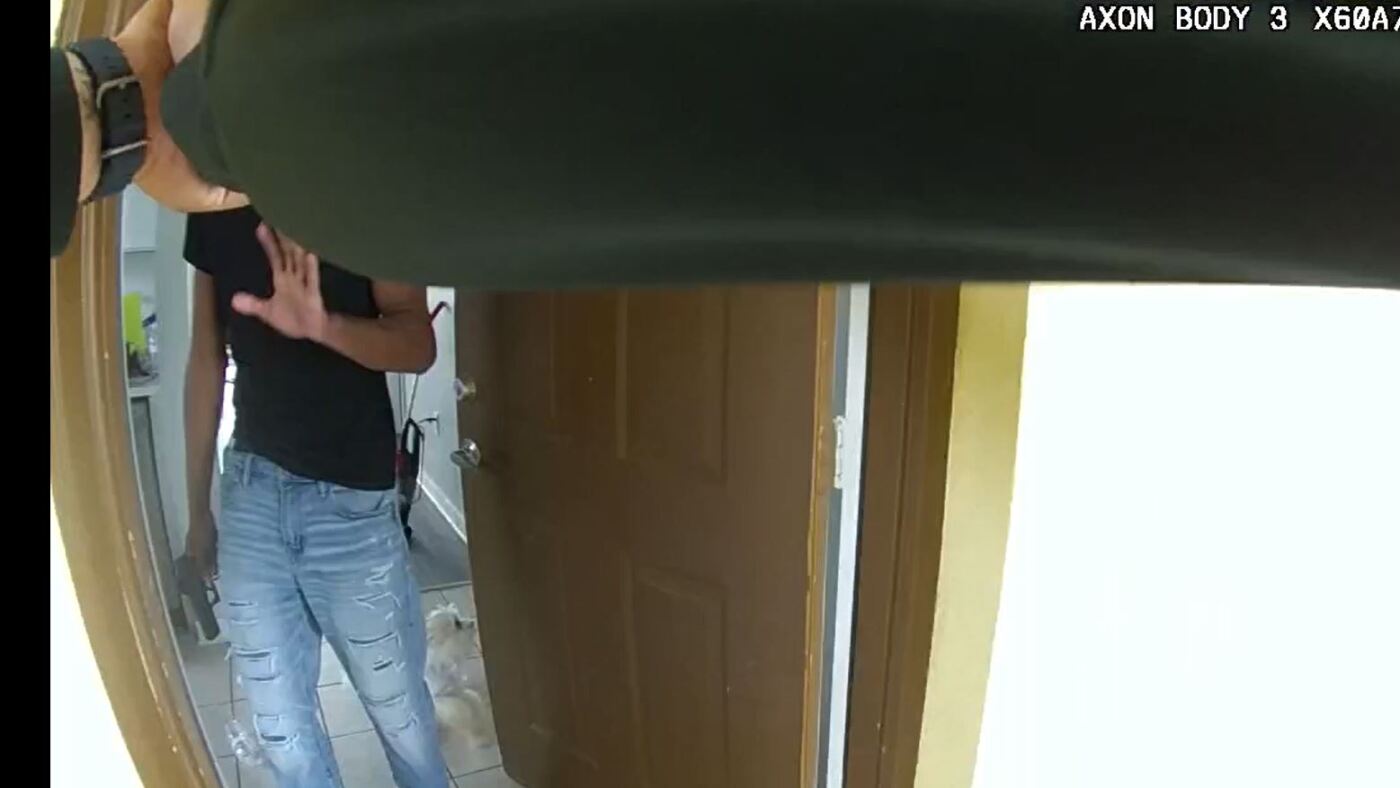Movie Reviews
Ben Affleck’s ‘Air’ movie review: Slam dunk film on the iconic Nike-Michael Jordan collab

Air is an intriguing film that explores the fascinating story of Nike’s recruitment of Michael Jordan and the creation of the iconic Air Jordan line. Directed by Ben Affleck, who also co-stars in the movie, Air delves into the realm of cultural change and the profound impact of a ubiquitous style. While the film presents a compelling narrative and showcases powerful performances, it falls short of delivering a fully satisfying experience.
One of the film’s notable strengths lies in its depiction of characters whose heroism is both extraordinary and obscure. The movie centres around Nike executive Sonny Vaccaro, portrayed by Matt Damon, who recognises Jordan’s immense talent and envisions the potential for greatness in him. Damon convincingly captures the essence of Sonny’s character, portraying him as a basketball guru and a determined advocate for the young athlete.
The story unfolds against the backdrop of Nike’s struggle to rise above its competitors, Converse and Adidas. Sonny’s risky plan to concentrate all of Nike’s resources on recruiting Jordan poses a significant challenge to the company. However, with the guidance of influential figures like Howard White (Chris Tucker) and George Raveling (Marlon Wayans), Sonny embarks on a mission to convince Jordan’s mother, Deloris (Viola Davis), of the benefits of joining Nike.
While Air succeeds in delivering its own version of the backstory, it remains somewhat detached from the broader context of the time. The film focuses intensely on its protagonists, to the point where their achievements are diminished and their impact on society at large is sidelined. This narrow perspective detracts from the film’s potential to magnify these characters and their accomplishments, reducing them to a mere success story.
The film’s three primary lines of drama, revolving around Sonny’s quest, Deloris’s quest, and Phil Knight’s (played by Ben Affleck) quest, gradually converge to form a cohesive narrative. Sonny’s insight and conviction in recognising Jordan’s greatness serve as a driving force behind the plot. Deloris’s insistence on her son receiving a percentage of every Air Jordan shoe sale adds a layer of inspiration and principle to the story. It signifies that the athlete is not just a brand ornament but an essential contributor to the shoe’s value. Moreover, it subtly raises the issue of Black athletes deserving a fair share of the wealth they generate for predominantly white-run businesses.
Affleck’s direction emphasises Phil Knight’s idiosyncratic temperament and his integral role in shaping Nike. However, the film’s narrow focus on the masterminds behind the recruitment of Jordan neglects the broader implications of the project. Air fails to explore the perspectives of the young Black consumers the shoes are marketed to, overlooking their voices and experiences. This missed opportunity inadvertently reinforces the notion that only experts and insiders like Sonny can lead public opinion and create a phenomenon.
The excessive focus on dialogue often serves as padding rather than offering deeper insights into the characters or their experiences. The film’s underwhelming exploration of the physical aspect, such as the design and development of the shoe, is a missed opportunity. Affleck’s direction, while creating a visually appealing film, lacks a sense of physicality and fails to connect with the actors on a deeper level.
Despite these flaws, Air remains captivating due to its absorbing portrayal of the recruitment process. Sonny’s expertise in both basketball and business shines through as he navigates the negotiations and stage manages the persuasion tactics. The film’s dialogue-rich nature, resulting from the collaboration between the actors and the screenwriter, adds flair and enthusiasm to the performances. Viola Davis delivers a standout performance in her limited screen time, grounding the film with her commanding presence.
In essence, Air is an intriguing movie that sheds light on the cultural impact of Nike’s recruitment of Michael Jordan and the creation of the Air Jordan line and does it well. Hell, I’m wearing the University Blue colourway of Air Jordan 1 right now as I finish writing this review.

Movie Reviews
'Thalavan': A well-crafted investigative thriller with strong performances from Biju Menon, Asif Ali | Movie Review

‘Thalavan’, directed by Jis Joy and starring Biju Menon and Asif Ali, has hit theatres today, delivering an entertaining investigative thriller. Recently, Malayalam cinema has seen an influx of police-themed movies, raising the question of what ‘Thalavan’ has to offer. Biju Menon’s last release, ‘Thundu’, another police movie, received a lukewarm response at the box office, so audiences were curious about ‘Thalavan’. This film is well-crafted and contains enough substance to be considered a solid investigative story.
The story revolves around two police officers, Jayashankar (Biju Menon) and Karthik (Asif Ali), and how one becomes a suspect in a murder case. While the movie may not be excessively gripping, it certainly manages to capture your attention. From the outset, the film dives into the investigative phase, immediately hooking you to the story. There is also an ongoing ego clash between the two officers, though this subplot doesn’t significantly impact the main story.
Movie Reviews
Atlas: Jennifer Lopez learns to trust AI in Netflix sci-fi thriller

2/5 stars
Mere months after Hollywood’s actors and writers reached an agreement with studios to protect their likenesses and creative output, it appears Netflix is already doubling down on its advocacy of artificial intelligence.
It is set in a near future when Earth is at the mercy of the world’s first “AI terrorist”. Lopez’s jaded heroine must overcome her distrust of technology and put her life in the hands of a sentient machine to save the planet from Armageddon.
Atlas adopts a decidedly more positive stance, suggesting that humanity’s continued survival relies on achieving synergy between man and machine.
As in that film, a female protagonist with prior experience of a non-human threat accompanies a squad of heavily armed marines on an off-world combat mission.
Rather than extraterrestrial xenomorphs, the antagonist is rogue android Harlan (Liu), who has vowed to stop humanity destroying the Earth by any means at his disposable. When the rest of the squad is wiped out upon arrival, it falls to Lopez’s data analyst Atlas Shepherd to take up arms herself.
Her survival relies upon forming a successful neural link with an AI-powered mech suit named Smith (voiced by Gregory James Cohan), something she is initially loath to do because of her innate distrust of technology – the result of a tragedy from her past.
Lopez has built a career playing mature, feisty women navigating a male-dominated world, and is absolutely in her element here.
Despite appearances from Sterling K. Brown and Mark Strong in supporting roles, it is Shepherd’s frosty banter with Smith that provides the film’s strongest relationship in an otherwise effects-heavy, overlong action thriller offering few surprises.

One could argue that the film is allegorical, addressing society’s attitudes towards any number of marginalised demographics.
At a time when AI is becoming frighteningly ubiquitous in daily life, however, Atlas perhaps should be taken at face value, while its overwhelmingly positive stance is cause for genuine concern.
Atlas is streaming on Netflix.
Movie Reviews
‘The Village Next to Paradise’ Review: Somali Family Drama Doubles as a Potent Portrait of Life in the Shadow of War

Mo Harawe’s debut feature The Village Next to Paradise is a haunting offering. The film, which premiered at Cannes in the Un Certain Regard section and is the first Somali film to ever screen on the Croisette, presents a compelling narrative of one family’s survival in a sleepy Somali town. But it’s the devastating backdrop against which their drama plays out that lingers long after the credits roll.
The siren wails of drones soundtrack each scene of Harawe’s film, which opens with footage of a real-life report of a United States drone strike on Somalia. Since the U.S. began using drones in the East African country in the early 2000s, Somalis have suffered at the hands of an enveloping and ravenous counterterrorism operation. According to data from the New America foundation, there have been more than 300 documented uses of drones resulting in hundreds of known civilian deaths.
The Village Next to Paradise
The Bottom Line Uneven but affecting.
Venue: Cannes Film Festival (Un Certain Regard)
Cast: Ahmed Ali Farah, Ahmed Mohamud Saleban, Anab Ahmed Ibrahim
Director-screenwriter: Mo Harawe
2 hours 13 minutes
The fatal impact of contemporary warfare organizes life in Paradise village, a locale whose name seems more melancholic with time. Marmargade (Ahmed Ali Farah), a principal character in Harawe’s languorous film, makes money doing odd jobs, but one of his most lucrative gigs involves burying the dead. Some of the people for whom he finds a place in the sandy terrain died of natural causes, but many of them are victims of foreign airstrikes. When this business slows, Marmargade reluctantly smuggles a truck full of goods — the contents of which play a pivotal role later — to a nearby city.
Because Marmargade knows the realities of living in a place shrouded by the shadow of death, he strives for a better life for his son Cigaal (Ahmed Mohamud Saleban), a buoyant kid who thinks nothing of the constant buzzing coming from the sky. When the local school cancels classes for the year because of chronic absenteeism among the teachers, Marmargade works to send Cigaal to a school in the city, where safety is more than an illusion. But Cigaal doesn’t want to leave his family, friends or his life in the village. When Marmargade proposes this new life to him, the child rejects the idea.
The main narrative of The Village Next to Paradise revolves around the conflicting desires within this makeshift family. Marmargade lives with his sister Araweelo (Anab Ahmed Ibrahim), a recently divorced woman who wants to build her own tailoring shop. The two have the kind of fractious relationship resulting from years of mistrust. She thinks her brother should be honest with Cigaal instead of trying to trick the young one into going to school. Marmargade wants his sister’s financial support more than her advice. After she refuses to lend him the money for tuition, Marmargade makes a series of decisions that threatens all their livelihoods.
Harawe’s film contains many admirable elements. With its unhurried pacing and tender focus on a single family, The Village Next to Paradise recalls Gabriel Martins’ 2022 feature Mars One. And the way Harawe structures the film around a broader geopolitical conflict resembles the role the Chadian civil war played in Mahamet Saleh Haroun’s 2010 film A Screaming Man, which also premiered at Cannes. The cinematography (by Mostafa El Kashef) offers truly striking images that conjure up the ghostly atmosphere of this village without turning its people into caricatures for a Western gaze hungry for a particular kind of poverty porn.
But The Village Next to Paradise is also hobbled in places by its meandering narrative and occasionally wooden performances from Harawe’s cast of local nonprofessional actors. The sharpness of Harawe’s vision is dulled by a story that takes one too many detours before settling into itself. Characters with dubious relevance are introduced and then dropped, while ones who come to play crucial roles don’t get an appropriate amount of screen time.
The film becomes more dynamic in its latter half, when Marmargade’s desperation leads him to questionable decisions that clash with Araweelo’s desires. Indeed, it’s also during these parts of the film that Harawe pulls the strongest performances from his actors, who otherwise struggle to shake off an understandable stiffness.
Despite these flaws, Harawe’s film does have a real staying power. The Village Next to Paradise orients itself around a quiet optimism and surprising humor that mirror real life. There are moments throughout that serve as a reminder that even in places where death feels close, hope for tomorrow is still alive.
-

 Politics1 week ago
Politics1 week agoSouthern border migrant encounters decrease slightly but gotaways still surge under Biden
-

 Politics1 week ago
Politics1 week agoDem newcomer aims for history with primary win over wealthy controversial congressman
-

 World1 week ago
World1 week agoSlovakia PM Robert Fico in ‘very serious’ condition after being shot
-

 World1 week ago
World1 week agoCanadian Nobel-winning author Alice Munro dies aged 92
-

 Politics1 week ago
Politics1 week agoVulnerable Dem incumbents move to the center in key swing states as Biden panders to far-left base
-

 News1 week ago
News1 week agoDespite state bans, abortions nationwide are up, driven by telehealth
-

 News1 week ago
News1 week agoSmall but mighty Nimble becomes first mixed-breed dog to win Westminster agility title
-

 World1 week ago
World1 week ago‘Monstrous crime’: World reacts to attack on Slovakia’s prime minister




















